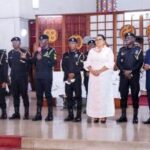University of Energy and Natural Resources – Sunyani, (UENR) has commissioned a Greenhouse Gas Monitoring Tower at the Bia Tano forest reserve in the Ahafo Region.
The project, supported by the Global Change Research Institute of the Czech Republic (CzechGlobe), will collect data on the impact of extreme weather events on the carbon sequestration capacity of the tropical forest.
The 56 meters tower monitoring station would use the eddy covariance technique – a non-destructive method that uses the turbulent mixing of matter in the boundary layer above the forest ecosystem.
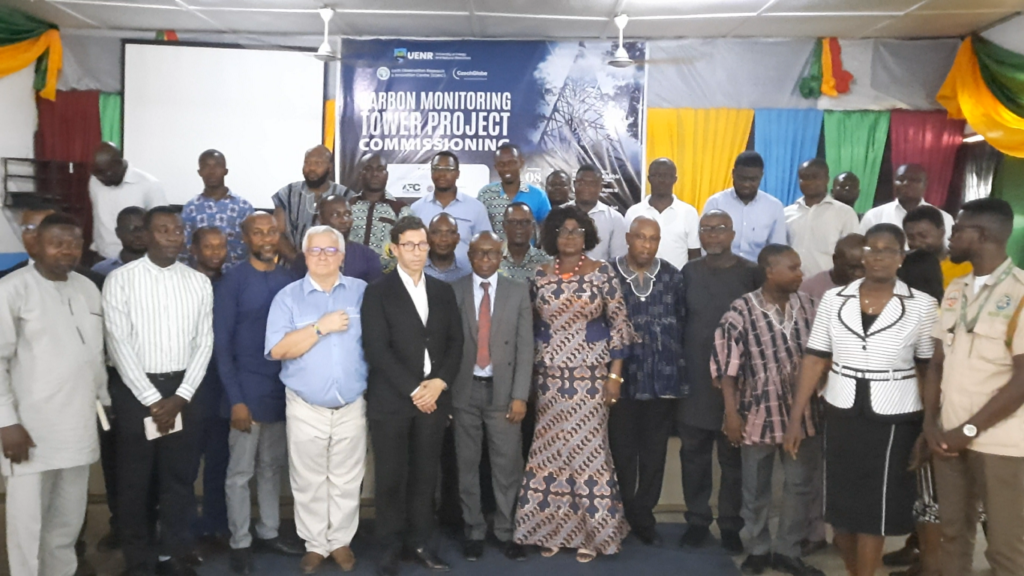
Dr. Caleb Mensah, project lead of the Ghanaflux team of UENR, said the climate change research project would help them understand the critical role the forest is playing in climate change mitigation strategies.
He said there is a need to know how the trees in the forest and those being planted are behaving under different climatic conditions.
“Are they able to sequester more of the carbon we expect them to, and even if they do, are we able to quantify the exact amount?” he asked and added that the project, which is now operational, would help provide answers.
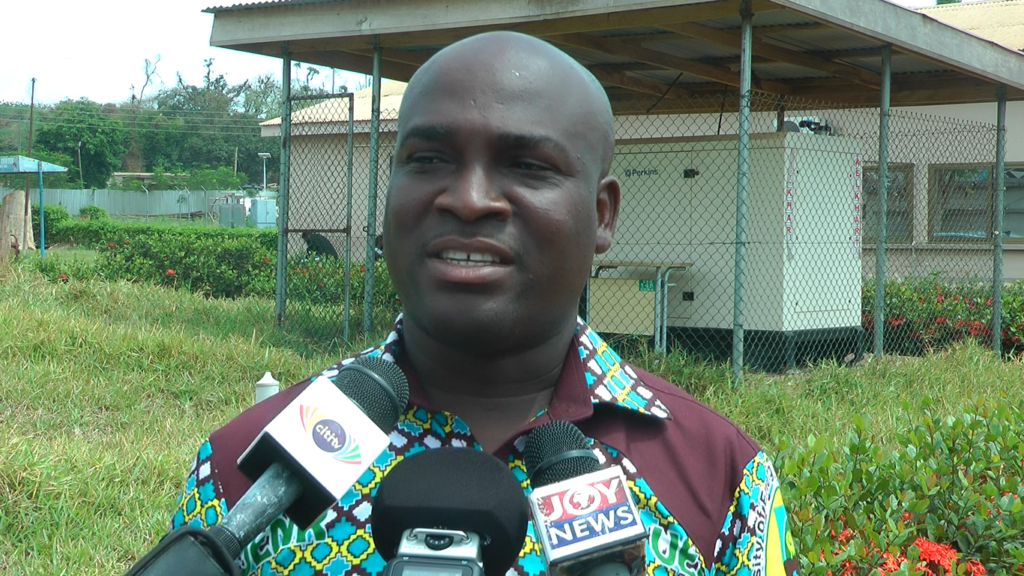
The UENR CzechGlobe joint research station, according to Prof Elvis Asare-Bediako, Vice-chancellor of UENR at the commissioning ceremony at the university, is one of the few flux towers on the African continent to collect carbon flux data over a tropical primary forest, and the only one owned by a public funded University within the sub-Saharan African region to conduct such important research.
He emphasized the importance of GreenHouse Gas emission and sink inventory to the United Nations Framework Convention on Climate Change (UNFCCC) in formulating and implementing comprehensive climate policies for climate, energy, and environmental sustainability.
“Also, results from this project will support the government’s efforts in promoting sustainable forest management practices, conservation of forest biodiversity, and increasing forest carbon stock as a way to regulate deforestation and provide access to funding opportunities from the Agriculture, Forestry, and Other Land Use (AFOLU) carbon projects (such as the Reducing Emissions from Deforestation and Forest Degradation (REDD+)) to support national development”, he explained.
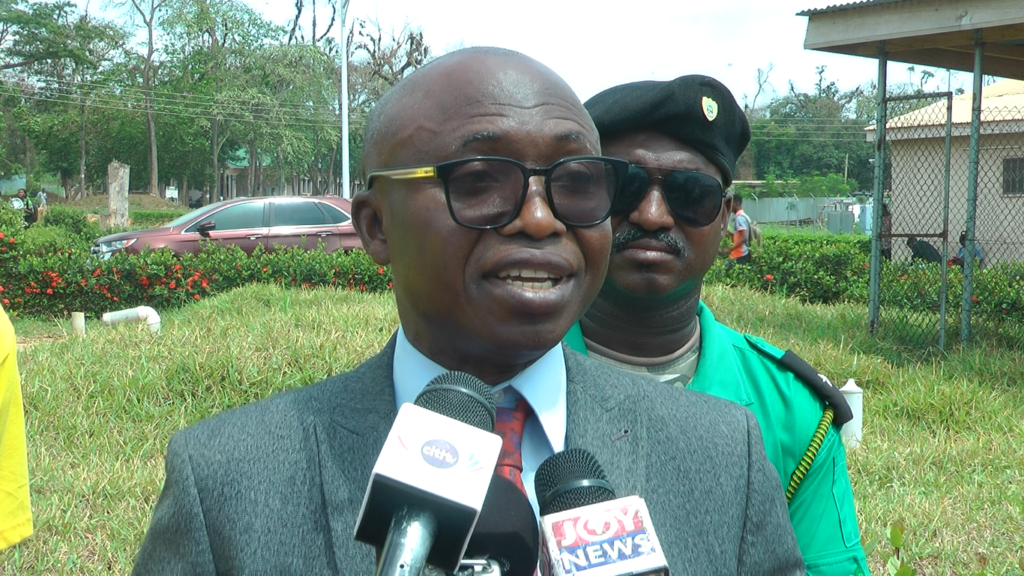
Prof Asare-Bediako said the University is committed to climate change mitigations and hence appealed for continuous financial and technical support to expand and ensure the maintenance of the carbon monitoring station for Ghana’s benefit.
Minister for Environment, Science, Technology, and Innovation, Dr. Kwaku Afriyie, in stressing the commitment of the government towards mitigating the impact of climate change with strategic policies, added that they are also committed to the success of the carbon monitoring project by UENR.
“We have helped the university to acquire a partial waiver on the sensors donated by CzechGlobe, and officials from the ministry and the Environmental Protection Agency will work with the scientist from the university on the project and the needed technical assistance and guidance for effective management and the utilization of the data for maximum impact”, he said.
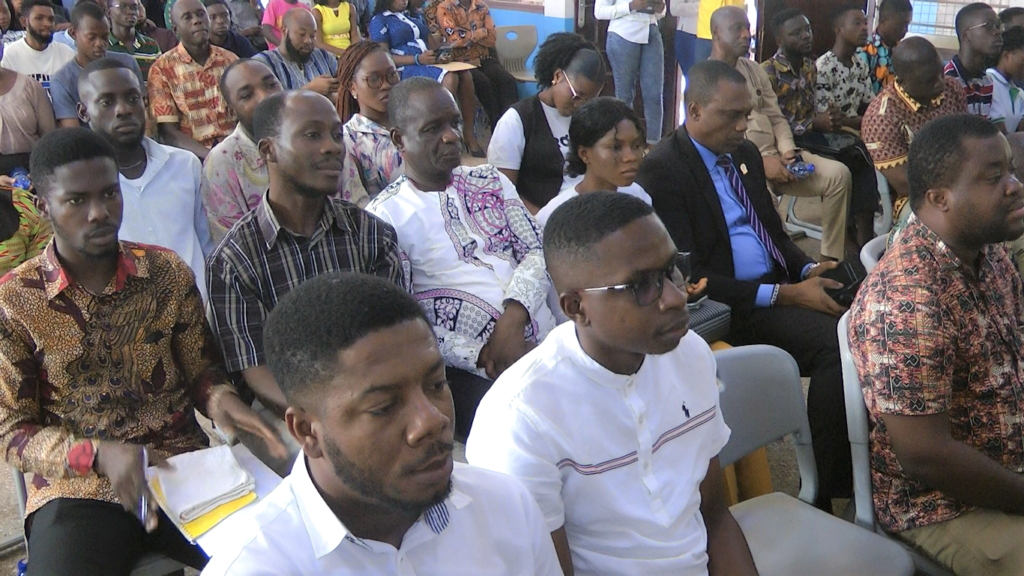
Besides the financial support, CzechGlobe has also trained 3 of the University staff on Ph.D. programs and a technician to assist with the management of the station.
According to the Director of CzechGlobe, Prof. Michael Marek, the decision to settle in Ghana was primarily due to the stable political system.
Czech Republic Ambassador to Ghana, Jan Fury, in expressing his delight with the cooperation resulting in the project, hopes the initiative brings more projects to the university and serves as a source of inspiration to other institutions in Ghana.
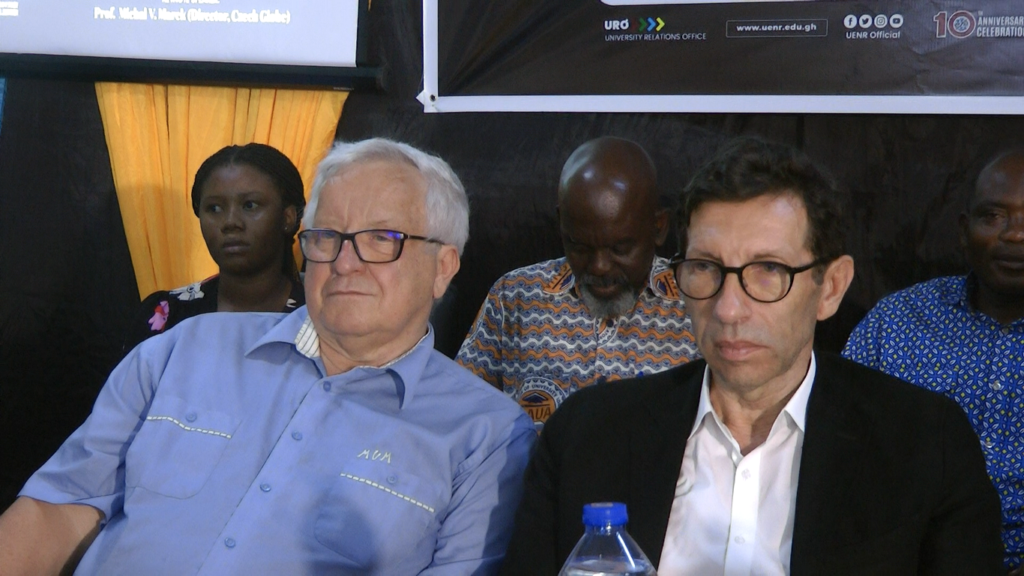
He, however, reminded Ghanaians of the need to continue to protect the environment, as they remain a key factor in the country’s survival.
Other partners of the carbon monitoring project at the Bia Tano forest reserve, commissioned by the Bono Regional Minister, Justine Owusu Banahene, are the Earth Observation Research and Innovation Centre –Sunyani, Forestry Commission of Ghana, Forestry Research Institute of Ghana, and Lancaster Environment Centre of Lancaster University.
